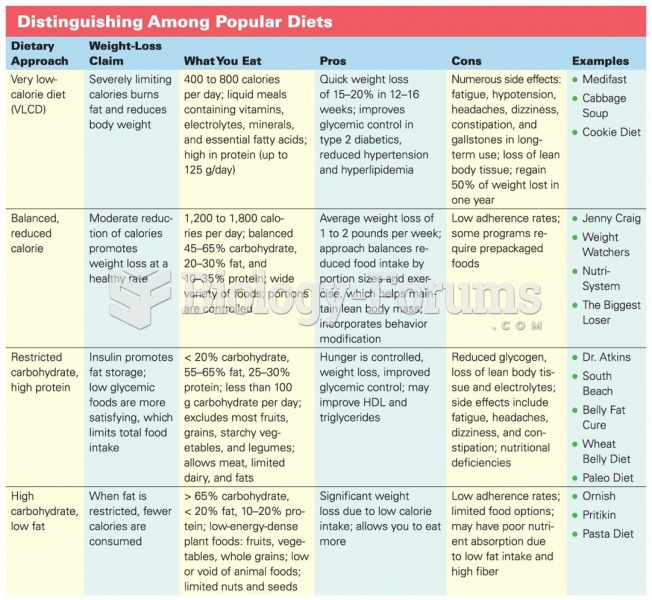|
|
|
The first oncogene was discovered in 1970 and was termed SRC (pronounced "SARK").
The Centers for Disease Control and Prevention has released reports detailing the deaths of infants (younger than 1 year of age) who died after being given cold and cough medications. This underscores the importance of educating parents that children younger than 2 years of age should never be given over-the-counter cold and cough medications without consulting their physicians.
Asthma attacks and symptoms usually get started by specific triggers (such as viruses, allergies, gases, and air particles). You should talk to your doctor about these triggers and find ways to avoid or get rid of them.
The liver is the only organ that has the ability to regenerate itself after certain types of damage. As much as 25% of the liver can be removed, and it will still regenerate back to its original shape and size. However, the liver cannot regenerate after severe damage caused by alcohol.
Prostaglandins were first isolated from human semen in Sweden in the 1930s. They were so named because the researcher thought that they came from the prostate gland. In fact, prostaglandins exist and are synthesized in almost every cell of the body.
 Rates of water loss by two turtles and a tortoise indicate an inverse relationship between the dryne
Rates of water loss by two turtles and a tortoise indicate an inverse relationship between the dryne
 Frequent dining on fast food, which tends to be higher in fat and carbohydrates, may be convenient ...
Frequent dining on fast food, which tends to be higher in fat and carbohydrates, may be convenient ...





